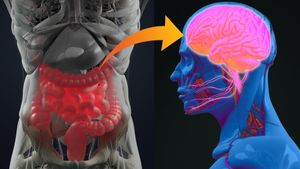Germany is currently witnessing intense discussions over migration policies, especially after the CDU/CSU's recent proposal to tighten asylum regulations gained majority support with assistance from the far-right AfD party. This collaboration has sparked significant public debate, as many are assessing the potential political fallout from such alliances.
Polling data suggests the public is divided on the Union's collaboration with the AfD. According to the latest surveys, there is general support for stricter migration policies—63% of participants agree with easier refoulement of asylum seekers at the borders. Meanwhile, the CDU/CSU maintains 30%, with the AfD rising to 22% and the SPD at 17%, reflecting minimal fluctuations within margins of error.
Analysis from the ZDF Politbarometer, conducted from January 27-29, indicates roughly equal division on the Union's decision to incorporate AfD votes, with 47% showing approval, especially among CDU/CSU supporters (66%), but 48% disapproving this approach. Interestingly, nearly double the CDU base (28%) disagree with their party's tactics, illuminating potential fractures within its electorate.
Markus Söder, the CSU leader, defended the Union's stance, emphasizing the need to address public concerns over migration. "The demands of the population compel us to make serious policy changes. To avoid empowering radical factions, the Union must lead with clarity and decisiveness," he stated, reflecting the urgency perceived by the party's leadership.
Yet historical figures, including former Chancellor Angela Merkel, have criticized this strategy. Merkel openly decried the partnerships with the AfD as damaging, contributing to the drama within the party and raising concerns over political integrity.
Further complicate the electoral picture planned for the Bundestag elections. Many parties appear stagnant or stagnant, particularly with the SPD and Greens hovering at 15% and 14%, respectively. Only the BSW showed marginal gains, now at 6%, but still struggling to meet the threshold required for parliamentary representation.
Simultaneously, public sentiment is fluid—24% of surveyed individuals are reconsidering their past voting intentions, potentially altering the dynamics of the upcoming elections. This finding reflects dissatisfaction with recent moves by both the CDU/CSU management and its willingness to align with the AfD.
The RTL/ntv Trendbarometer from early February showed nuanced reactions, where 46% of respondents supported the Union’s tactical acceptance of AfD votes for the migration bill. Yet, 50% expressed discontent, doubting the impact of such decisions—41% believed Merz, the CDU leader, when he claimed post-election, the Union would ally with neither the AfD nor entertain any formal coalition.
Such developments, particularly when juxtaposed with the backdrop of increasing far-right influence and growing public dissatisfaction with mainstream parties, illuminate the strategic dilemma faced by the Union. Shifts are evident—while seeking stronger migration policies, the CDU/CSU now risks alienation from moderate sectors, needing to tread carefully to retain broader voter support.
The run-up to the Bundestag election on February 25, 2025, is pivotal. With polling fluctuated, the CDU/CSU must contend with both external pressures from rising parties like the AfD and internal divisions questioning the effectiveness of their support base strategies—especially those who fear being overshadowed by far-right perspectives.
With tensions from union disputes and increased public rallies against migration policies, societal discord appears to be mounting. There has been weekly civil unrest, exemplified by mass protests against the Union's collaboration with the AfD, signaling public backlash from constituents eager for change. More demonstrations are expected leading up to the election, as the turbulence surrounding this core issue intensifies.
It remains to be seen how the Union will navigate this complex terrain. Post-elections consequences for decisions made today will define the political legacy of Merz's coalition, shaping the future of German politics significantly if alliances with the extreme right continue to deepen.



